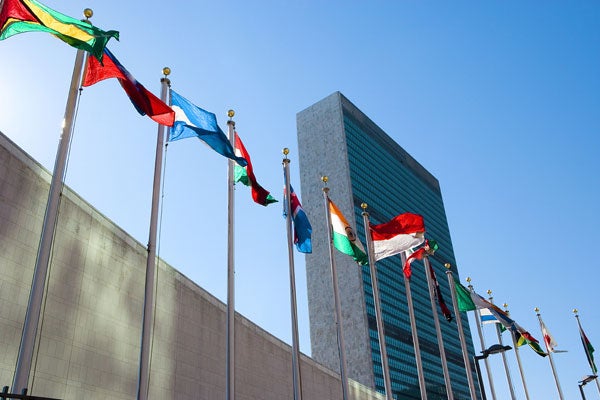
On Tuesday, United Nations Deputy Secretary-General Jan Eliasson characterized free speech not as a fundamental right, but as a “privilege” given to us by the U.N.
Specifically, he referred to “the freedom of speech, the freedom of expression” as a:
gift given to us by the [Universal] Declaration of Human Rights, but it also implies some type of responsibility to use that in such a way that you don’t cause situations.… [It is] a privilege that we have, which in my view involves also the need for respect, the need to avoid provocations, in a world where we have enough of contradictions and hatred.
This opinion will come as a surprise to most Americans who don’t believe the U.N. has the authority to grant or, presumably, revoke our rights and freedoms.
Freedom of speech—a right considered by America’s founders to be endowed upon free people by our Creator, not by government—is one of the bedrock principles of our nation. The First Amendment to our Constitution states:
Congress shall make no law respecting an establishment of religion, or prohibiting the free exercise thereof; or abridging the freedom of speech, or of the press; or the right of the people peaceably to assemble, and to petition the Government for a redress of grievances.
President Obama specifically referenced this principle in his speech last week to the U.N. General Assembly, noting, “I know there are some who ask why we don’t just ban such a video. And the answer is enshrined in our laws: Our Constitution protects the right to practice free speech.”
Sounds good, right? However, the President then repeatedly weakened and undermined his defense of free speech in his address to the assembled world leaders. Indeed, the President backhandedly endorsed global efforts to restrict free speech—especially the “defamation of religions” resolutions offered by the Organization of the Islamic Conference in the U.N.—when he said:
The future must not belong to those who slander the prophet of Islam. Yet to be credible, those who condemn that slander must also condemn the hate we see when the image of Jesus Christ is desecrated, churches are destroyed, or the Holocaust is denied. Let us condemn incitement against Sufi Muslims, and Shiite pilgrims.
This was a grievous mistake. Few, if any, nations defend freedom of speech as strongly as does the United States. If the U.S. goes wobbly on freedom of speech, other nations will surely take advantage.
Historically, the U.S. has been the bulwark defending free speech from assault in the U.N. In Europe, governments support bans on hate speech. In totalitarian states, governments repress political speech. In many predominantly Muslim nations, governments outlaw “blasphemy” and proselytism and any other speech and actions they deem insulting to Islam.
In recent weeks, governments have been increasingly bold in asserting that speech be subject to restrictions based on how others might be offended or provoked. This is an outrageous assault on a fundamental right that, if realized, would render free speech meaningless.
The U.S. should denounce Eliasson’s comments and other assaults on free speech at the U.N. But U.S. officials cannot do that effectively when President Obama said essentially the same thing last week.
The President’s half-hearted defense of free speech, weakened by caveats and conditions, has given the U.N. mandarins like Eliasson a green light to express their own skepticism—and repressive governments a handy tool to advance their agendas.